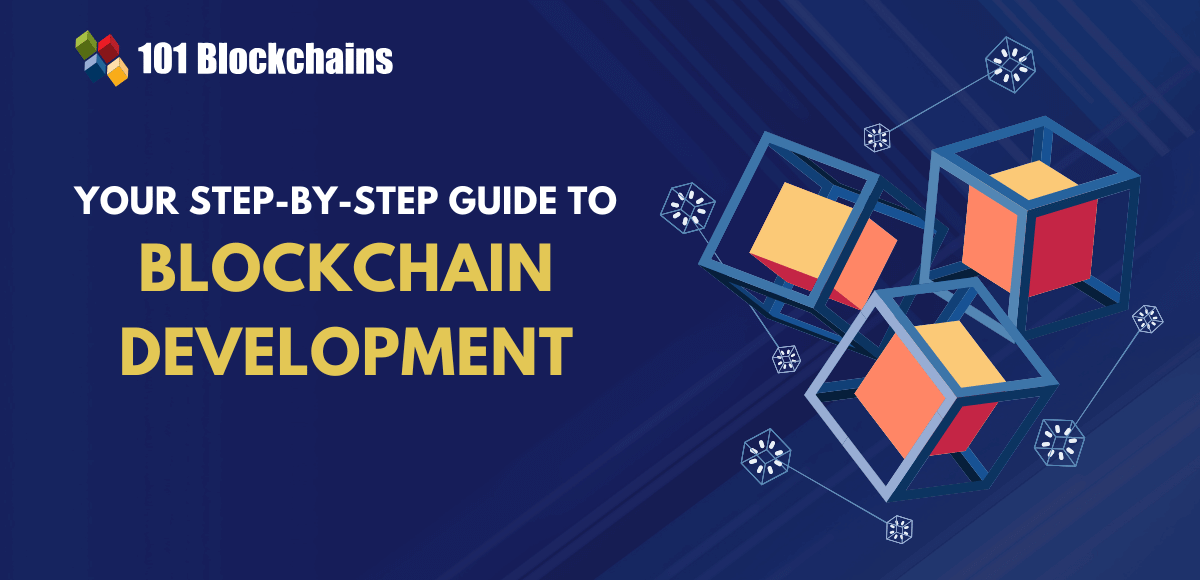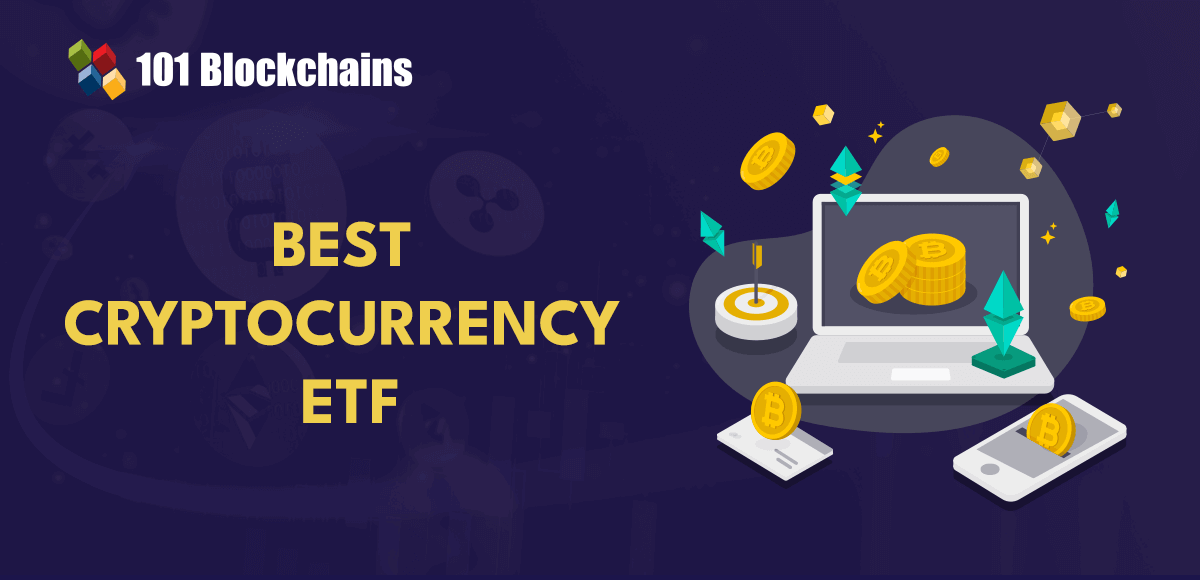Roadmap to becoming a blockchain developer

Blockchain is undoubtedly the hottest trend in the modern technological landscape. As blockchain adoption increases across various industries, the demand for blockchain developers has skyrocketed. Blockchain developers are the architects of future technologies and use innovation to create solutions to the most complex problems. You can also become a blockchain developer and build a strong foundation for your blockchain career.
Compensation for blockchain developers, including higher salaries and remote work options, provide just a few reasons to work as a blockchain developer. As you dive deeper into the role, you can expect to benefit from continued professional growth and staying relevant to new technology trends. Let’s find the best resources that can help you achieve your goal of becoming a blockchain developer.
Through the Blockchain Developer career path, you can become a highly skilled blockchain developer and create new, high-level, innovative blockchain solutions for a variety of industries.
Start by understanding your responsibilities.
Many people want to become blockchain developers in the shortest possible time to take advantage of the lucrative benefits. Even you probably wouldn’t think twice about pursuing a career path that could earn you $150,000 per year. At the same time, we must not forget the responsibilities we must bear as blockchain developers. A blockchain developer career path can help you become a core blockchain developer or blockchain software developer. You can expect distinct responsibilities in both roles, demonstrating why blockchain development is currently a promising career option.
Core blockchain developers are responsible for designing and creating the foundation or architecture of the blockchain protocol. The core blockchain developer’s responsibilities also focus on creating consensus protocols for the blockchain network. Core blockchain developers are responsible for implementing various blockchain features and optimizing the architecture through continuous monitoring and feedback.
Blockchain software developers create new applications using the foundation created by core blockchain developers. Blockchain software developers can create smart contracts, digital assets, dApps, NFTs, and a variety of other blockchain-based applications. The responsibility of a blockchain software developer is to create the frontend and backend of dApps and smart contract implementations. As a blockchain software developer, you will also need to create APIs to integrate your application with the blockchain network.

How can I become a blockchain developer?
The journey to becoming a blockchain developer can vary depending on an individual’s career goals, skills, and interests. Questions like ‘What does it take to become a blockchain developer?’ This is likely to be a problem for any candidate looking to become a blockchain development expert. Interestingly, you can find simple answers to these questions with a few helpful steps.
Aspiring candidates can begin training in blockchain fundamentals and become familiar with essential concepts such as consensus, smart contracts, and decentralization. Awareness of the important terminology of blockchain and the different types of blockchain architectures can help you pursue your next steps. After completing blockchain basics training, you will need to acquire important technical skills.
The most notable skills required for blockchain development include programming, networking, database management, and data structures. You must be fluent in one of the following programming languages: Python, C++, or Java. Candidates should also gain an in-depth understanding of the fundamental concepts of distributed systems and data structures. Another important technology required for blockchain development is encryption. You need to know the important principles of encryption and concepts such as hash functions and digital signatures.
Smart contracts are an essential component of blockchain development that help create dApps. Learners should become familiar with how the Ethereum blockchain and smart contracts can help automate various tasks in dApps. You should also strive to acquire Solidity programming skills, which can help you create smart contracts. The best thing about Solidity is that most of its elements are taken from JavaScript, making the language easy for software developers to understand. Applicants can hone their smart contract development skills through various educational programs and hands-on experience through internships.
Start learning blockchain with the world’s first blockchain technology path featuring high-quality resources tailored to you by industry experts!
Learning Resources Roadmap for Blockchain Development
The roadmap to becoming a blockchain developer is not just a guide to the critical steps to mastering the necessary skills. Meanwhile, a blockchain developer roadmap can also mean a roadmap of learning resources. You should choose courses in the order in which you can learn blockchain development from scratch. The following courses on the Blockchain Developer Career Path from 101 Blockchains provide the perfect roadmap to hone your blockchain development skills.
-
Blockchain Basics Free Course
The first step in your blockchain developer career path begins with a free course on the basic concepts of blockchain technology. Our free course will help you understand important terms and gain valuable insights that will boost your confidence. The Blockchain Fundamentals course will also help you understand why blockchain is growing in popularity and where it is headed next.
-
Ethereum development basic course
You probably know that Ethereum is an essential platform for blockchain development. The Ethereum Development Fundamentals course will help you learn the Ethereum network architecture and important concepts of Ethereum. The course also includes lectures on the requirements for building smart contracts and dApps, along with approaches for deploying the Ethereum Virtual Machine. One of the most important details of this course is its focus on new changes in the Ethereum ecosystem. Learners will also gain practical insights into important Ethereum development tools such as Metamask, Truffle, Remix, and Ganache.
-
Solidity Basics Course
Solidity is an essential requirement for smart contract development. Through the Solidity Fundamentals course, you can learn the basic principles and functions of Solidity. This course includes lectures on Solidity’s data types, variables, operators, functions, and control flow. Learners will also find comprehensive guidance on inheritance, interfaces, and libraries. Most importantly, you can also find ways to utilize the Remix IDE to generate, compile, and deploy code for smart contracts.
-
Smart contract development process
The next addition to the blockchain developer courses on this roadmap is the smart contract development course. This will help you become proficient in smart contract development with a basic knowledge of Solidity. This course provides insight into important smart contract development tools, smart contract deployment best practices, and unit testing methods. It also gives you the opportunity to develop the skills to work on real-world projects.
-
Smart Contract Security Course
Just building a smart contract is not enough as it needs to be secure from all types of threats. Our smart contract security training course will help you learn the most important security risks and vulnerabilities for smart contracts. Discover the most powerful tools and frameworks for evaluating workflows and discovering defects in smart contract development. Upon completion of the course, you will be able to create web3 applications with a stronger security infrastructure and better safety features.
-
DeFi development process
DeFi development training courses will help you expand your skills as a blockchain developer. A comprehensive resource to learn the fundamentals and use cases of DeFi along with the metrics that matter. You can become a blockchain developer with versatile expertise to create various types of blockchain-based applications, such as DeFi solutions. This course will help you learn about automated market makers and liquidity pools while providing insight into best practices for developing decentralized exchanges. Learners will also find information on best practices for leveraging DeFi development tools such as Hardhat, Solidity, and React.
-
DeFi Security Fundamentals Course
Knowledge of DeFi security concepts can complement your DeFi development expertise. The DeFi Security Fundamentals course provides a comprehensive understanding of notable security risks in DeFi projects. One of the best things about this course is that it provides real-life examples of DeFi hacks to understand the threat of security risks. This course will equip learners with best practices for addressing DeFi security risks.
Blockchain developers must also have the skills to create NFTs, and an NFT development training course can help them achieve this. This course will help you learn how to create NFTs using Solidity, Hardhat, and leading layer 2 solutions along with important token standards. You should also learn about best practices and tools you can use with Solidity to create and test NFT marketplaces.
-
Web3 Application Development Course
The Web3 Application Development Training Course is a simple and effective resource to become familiar with the Web3 application development life cycle. Identifying the tools and frameworks needed for web3 application development is an important choice for any blockchain developer career path. The course also provides a detailed explanation of web3 application architecture.
-
Polygon Web3 Development Course
The Polygon Web3 Development Training Course provides insight into the entire web3 application development lifecycle on the Polygon blockchain. It can help you understand the Polygon development environment and development workflow for various web3 solutions.
-
Advanced Solidity Development Course
Our advanced Solidity development training course will help you increase your expertise in writing smart contracts using Solidity. This course introduces smart contract upgrade possibilities along with insight into Solidity Assembly fundamentals. You can also learn best practices for optimizing gas usage in Solidity smart contract development.
-
Blockchain Scalability and Interoperability Master Course
The blockchain scalability and interoperability mastery path is different from other blockchain developer paths on this roadmap. This course prepares you to think about the future of blockchain-based applications with a focus on improving scalability and interoperability. Not only will you understand the challenges of scalability and interoperability, but you will also discover the most promising solutions.
Build your identity as a certified blockchain professional with 101 Blockchains’ blockchain certification, designed to provide enhanced career prospects.
final thoughts
The journey to becoming a blockchain developer involves exploring thousands of educational resources. You can achieve your career goals with the help of our predefined learning resources roadmap. Our curated collection of 101 courses on blockchain can provide you with the best results in your career path for blockchain developers. Learn more about the course and start preparing today.




